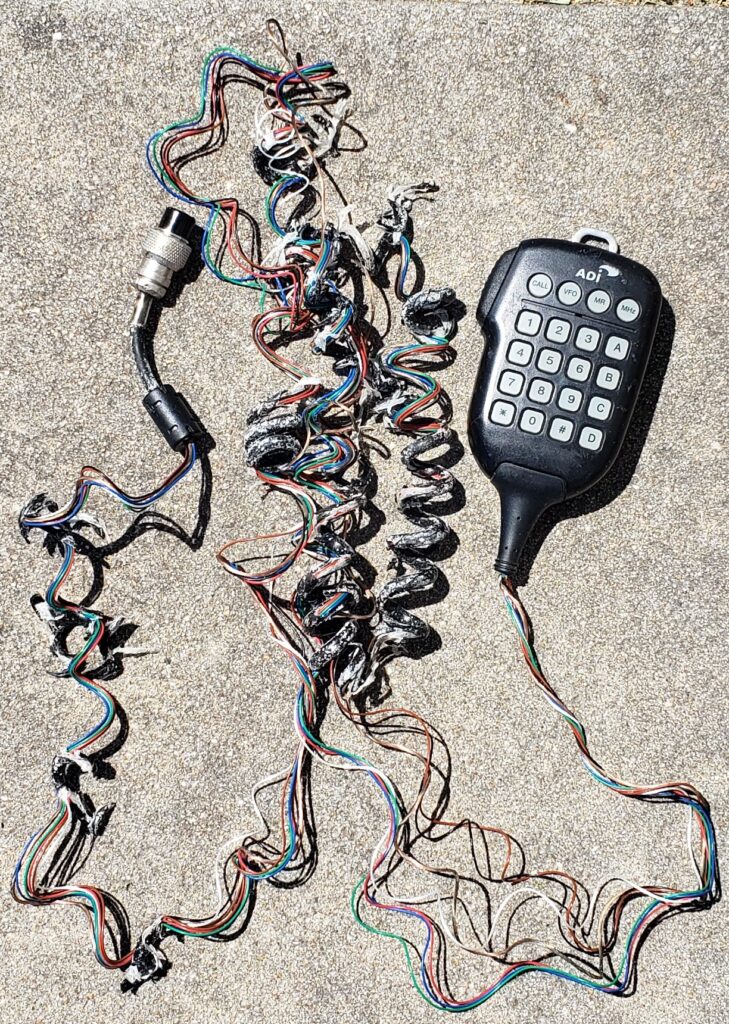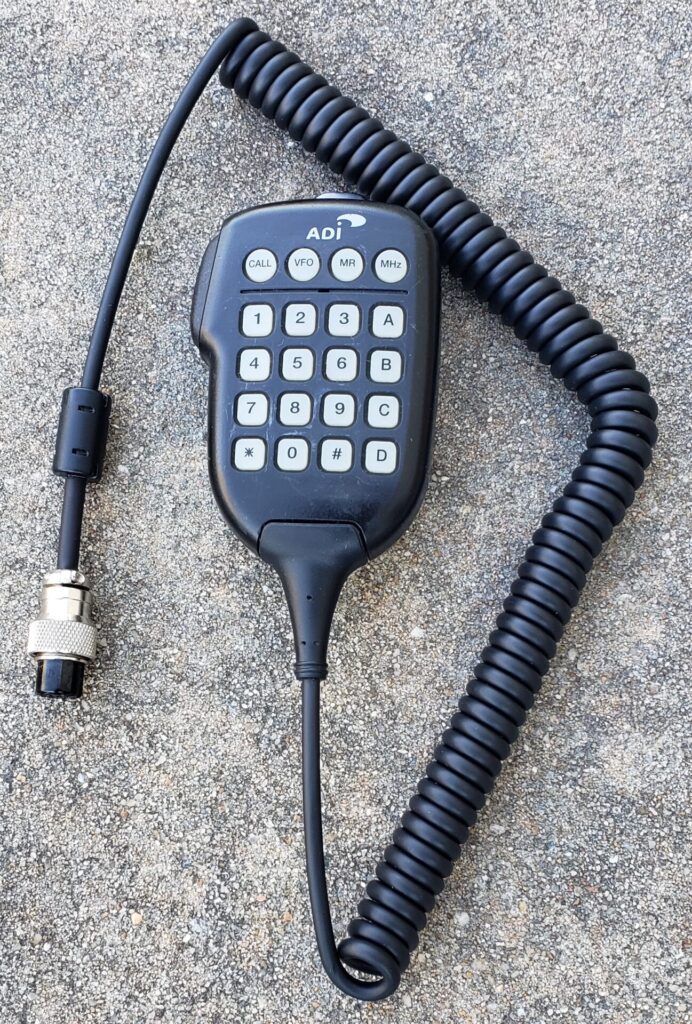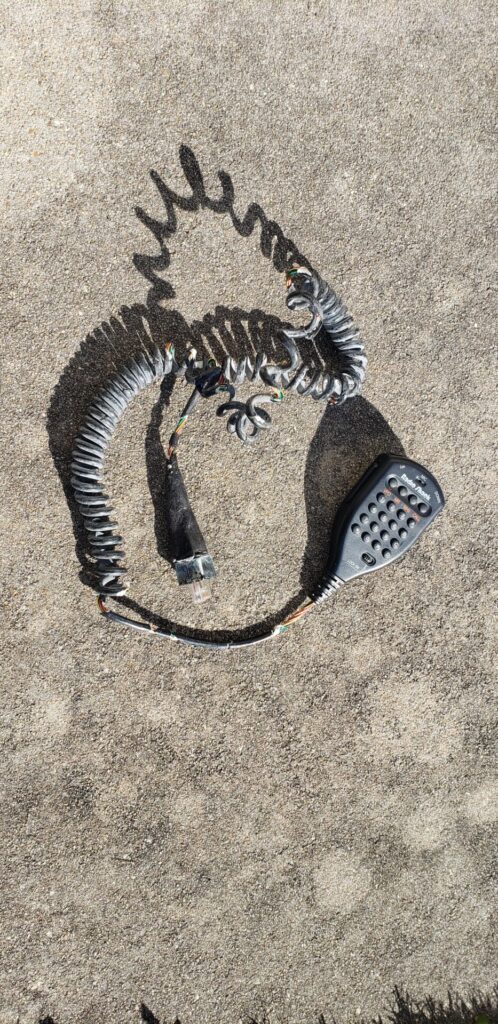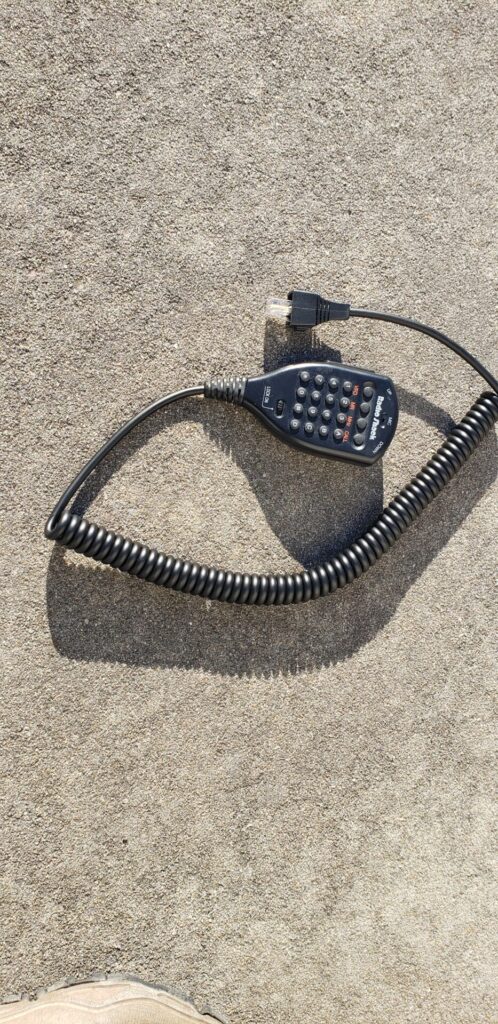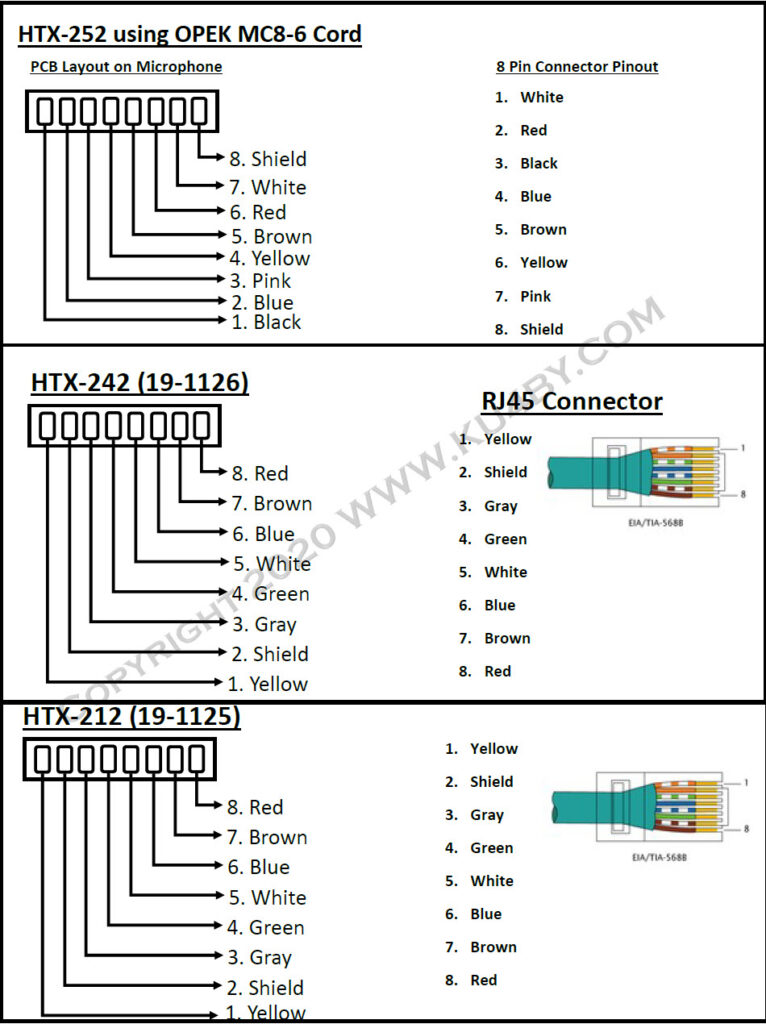I’ve noticed an uptick in the HTX-212 / HTX-242 microphones that I receive for repair where the solder pads and/or traces are damaged and/or missing altogether so I wanted to touch on a few things in case you are planning to attempt your own cord replacement. This post is not intended to shame anyone who has sent me a damaged board, just trying to prevent more damaged boards in the future.
The solder pads on this series of microphones are through hole pads meaning there is copper that goes from one side of the board through the hole to the other side of the board. This is the strongest solder joint you’ll ever obtain when soldering a conductor to a PCB because you have a connection across the entre section of the conductor that goes through the hole instead of on either just one side or both sides. This also means it is the toughest type to desolder from the board as well.
There are a few different ways to desolder the connector off of the microphone. You can add some liquid flux, melt the solder, and use a vacuum bulb or “solder sucker” to suck out a majority of the solder for each pin. You can use some liquid flux and some wicking braid aka desoldering braid and watch the solder flow away from the joint into the braid. Also, if you have a pair of wire cutters with thin enough blades, you can cut the connector 7 times between each conductor and then treat the removal like you were removing 8 separate conductors instead an 8 pin connector. I did this a couple times but doing it prematurely destroyed my snips and I got tired of buying new ones. If you’re only doing this once it’s probably not a big deal. You’re not reusing the connector anyway so why not destroy it?
What I have found to work the best for me is to put some liquid flux on the solder side of the connector over all 8 of the pins. Then I take a chisel tip on my soldering iron and quickly slide it back and forth between all 8 pins. While doing this, I apply a little pressure on the connector side of the board to pry the connector away from it. This does two things. First, it keeps all of the solder joints a little melted all at once which allows me to be able to slowly pry the connector out. Secondly, it doesn’t allow any one of the joints to overheat which can cause some of the damage I have been seeing on the mics I receive. Sometimes this is a really quick way to remove the connector but sometimes it takes a little bit longer. Once the connector is removed, there is bound to be some left over solder so at that point I just drop some more liquid flux and hit the pads with some wicking braid and it all comes off looking shiny and new.
Definitely avoid overheating the board though. If you overheat the area of the HTX-242 microphone board closest to the right edge, the surface mount inductor”L1″ just above the plug will come loose and possibly fall off opening up the 5V line powering up the mic itself. Don’t ask how I figured that one out… Also, don’t ever apply too much pressure when trying to remove the connector as this could, and often does, result in damaging the pad and/or trace connected to it. There is very little space inside these microphones to allow for modifications as to where new solder connections can be made. It is always best, and strongest, to be able to solder the new cord back to the board via the through hole pads. A few of them I have done didn’t allow me to do that so I connected it where I could and then stabilized the connection with some hot glue in hopes that the conductor never gets pulled away from the board. The stress relief should take care of this part but the stress reliefs are a story for a different day… Hahaha
Replacing the cords on the 212/242 series mics isn’t really all that complicated and I still replace them all the time for $45. If you want to attempt to do it yourself, go for it! If you have questions before you attempt to do it yourself, hit me up on my Contact Me page and I’ll be happy to discuss it with you. Whether you do it or I do it, the important thing is that it is done correctly to avoid damaging the mic board to a point of no return because you obviously can’t find replacements out in the wild anywhere.
TTFN
73!
Steve
